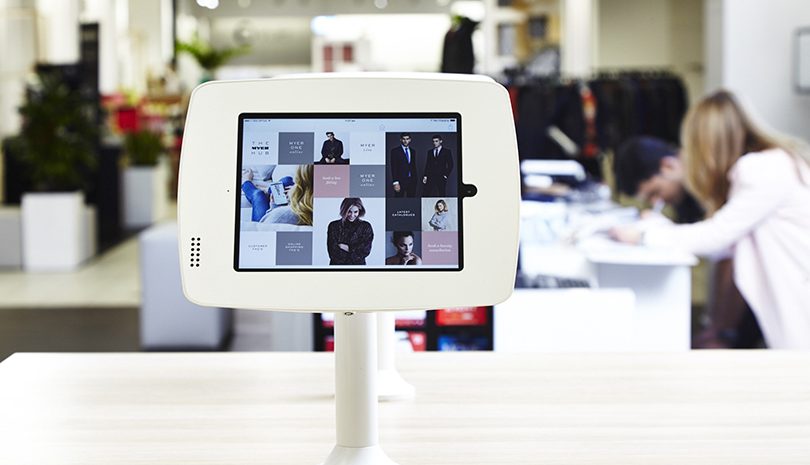Myer embraces ‘fail fast’ motto

The new Myer is embracing the start-up industry’s favourite slogan — fail fast — and encouraging it internally, says CEO Richard Umbers.
“Once you open the door to technology, there is no shortage of ideas,” Umbers said during an Australia-Israel Chamber of Commerce event last week.
“The challenge is what you do next; what is the next realistic thing you can achieve that is going to be appreciated by your customer?”
Umbers outlined how new projects are developed, a process that began as an experiment and has become a model for the department store. Individual employees who identify a problem in stores join Myer’s agile development team. They take ownership of the project and a team is built around them to help develop and prototype a solution. They are then put back in the store environment to implement and champion the new system.
“These are quite new techniques for traditional businesses, but they are actually very, very powerful because they go to rapid adoption as well as the ability to do the dev work,” Umbers said.
More broadly, the process of deploying projects is challenging the traditional governance model Umbers said, moving to prototype-driven, test and trial methods.
“We are at the leading edge where a lot of technology is still in a very volatile kind of place and a lot of stuff people are trying doesn’t work first go, so what’s having to happen is the way that ideas are operationalised and brought into your business model has to be a much swifter, a much more agile process.”
Despite all the talk of technology, Umbers insisted that the primary focus of any business should be on its core business model. 60 per cent of your efforts should focus on core business, 30 per cent on “winning in the mid-term” Umbers said, which leaves 10 per cent of your efforts to experiment. Myer’s virtual reality department store launched last month with eBay falls into the third category.
“It was a really exciting thing to do,” Umbers said of the VR launch. “It’s not going to be a revolution here and now, but I bet you that in a decade’s time virtual reality is playing a critical, active role in our industry.
“Being able to get there, get there early and get there first is getting the learnings, it’s adapting your culture, making that possible in five to 10 years time.”
The trick is in encouraging a natural basis towards looking to the future and embracing change, he said.
Comment Manually
You must be logged in to post a comment.

No comments